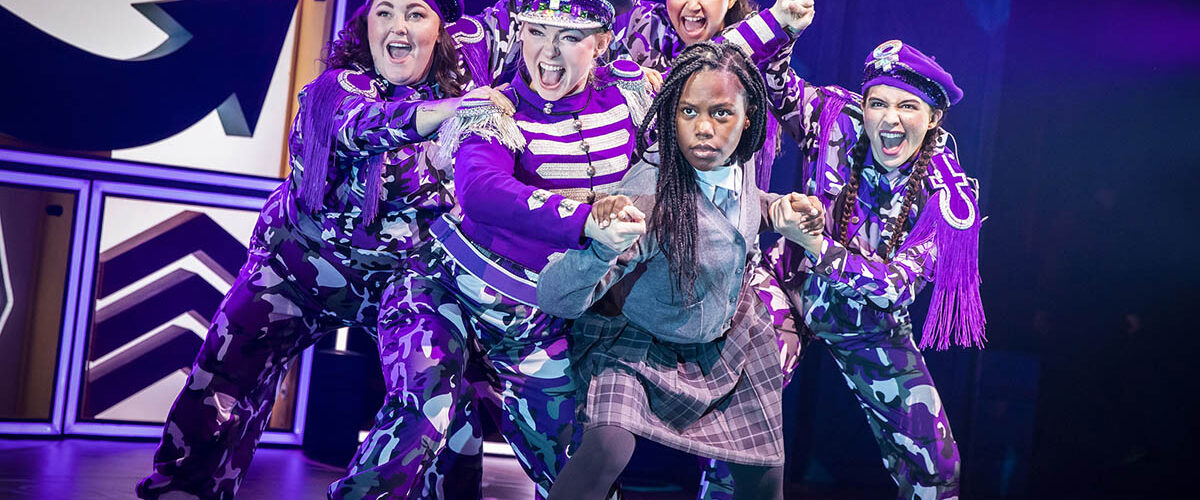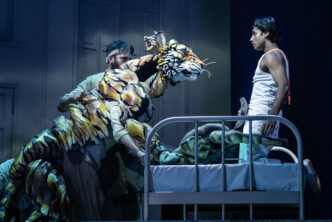Joyous, informative, inspiring. This is a show not just for mothers and daughters, but for fathers and sons (who also, of course, need to know about fantastically great women).
Kate Pankhurst’s book, adapted for the stage by Chris Bush, is threaded along the tale of 11-year-old Jade, who turns up late for a school trip (not her fault, of course), takes a wrong turn and finds herself in a section of the local museum currently closed to the public.
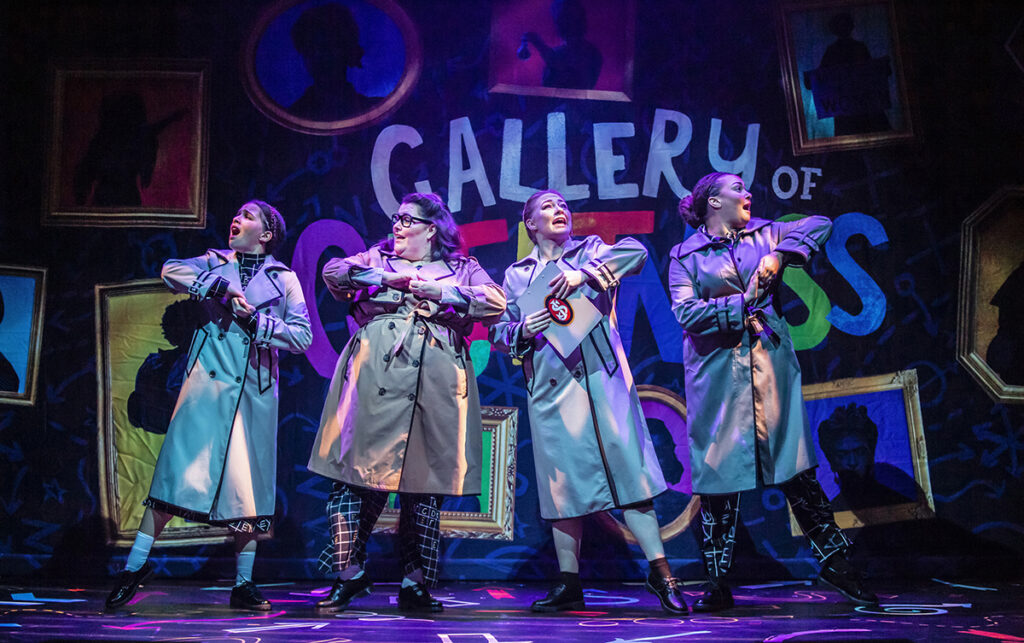
The set is simple but effective. At stage level, props morph into scenery, while three musicians (Nicola T. Chang – percussion and keys; Isis Dunthorne – drums; Audra Cramer – MD and keys) sit on high.
Jade’s unscheduled trespass into the upcoming exhibition of ‘Fantastically Great Women’, triggers a life-changing series of encounters with some of the female titans of history.
First up (very snazzily attired, courtesy of Joanna Scotcher’s fertile design imaginings) is American aviator, Amelia Earhart.
“Where do you want to go?” she asks Jade (meaning in life, not just the museum); a tough question for an 11-year-old, worried about her parents’ upcoming divorce and fretting that no one ever listens to her.
With help from another outstanding American (cross-channel swimmer, Gertrude Ederle) and an upbeat song, Amelia sets about helping Jade believe in herself. Suddenly, Jade has big (and possibly slightly unrealistic) plans:
“I’ll do it all before I’m 12!”
Clearly, Jade has more to learn. Fortunately, there is no shortage of fantastically great women to help her work things out.

Next up, kitted out as a drum majorette, is local hero (and distant relative of the author) Emmeline Pankhurst. Emmeline tells Jade that, “well-behaved women rarely make history.” No doubt all the young women in the audience were taking note…
While these remarkable women emphasise action – “Deeds not words” – they repeatedly preach solidarity and cooperation:
“It’s not just about where you go, but about who you take along with you.”
There’s a fun number featuring fantastic Marys – Mary Seacole (nineteenth century Jamaican nurse), Mary Anning (youthful discoverer of dinosaur fossils), and “Mary,” well, Marie Curie (Polish/French physicist and chemist, double Nobel Prize winner).
While men are occasional ridiculed (usually for their outrageous beliefs about women’s limitations) it’s handled with a light touch. Credit is also given where it is due – for example, Pierre Curie’s refusal to accept a Nobel Prize unless his wife, Marie, was also granted one.
“Nobody changes the world alone.”
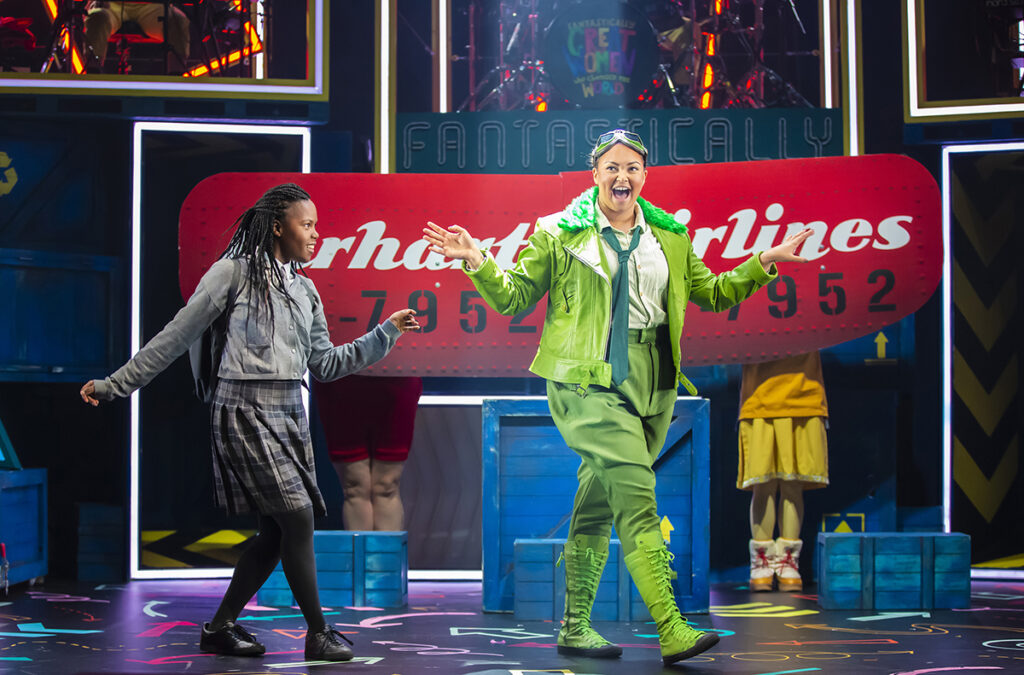
Historical accuracy is rightly paramount in “Fantastically Great Women,” so there is an acknowledgement that not all these women had a happy ending, while noting that the end of a life need not mean the end of a story. To bring this home, there’s a moving episode in which Jade sits between civil rights activist Rosa Parks and youthful diarist Anne Frank, victim of the Nazis.
We close with a suitably rousing finale, reminding us that, “there is no such thing as an ordinary woman” and that, “everyone here is fantastic!”
Most of the six-strong cast play multiple roles and revel in it. The staging (directed by Amy Hodge and choreographed by Dannielle ‘Rhimes’ Lecointe) is tireless, bright and witty. The songs (music by Miranda Cooper and Jennifer Decilveo, and lyrics by Chris Bush and Miranda Cooper) carry the young audience along enthusiastically.
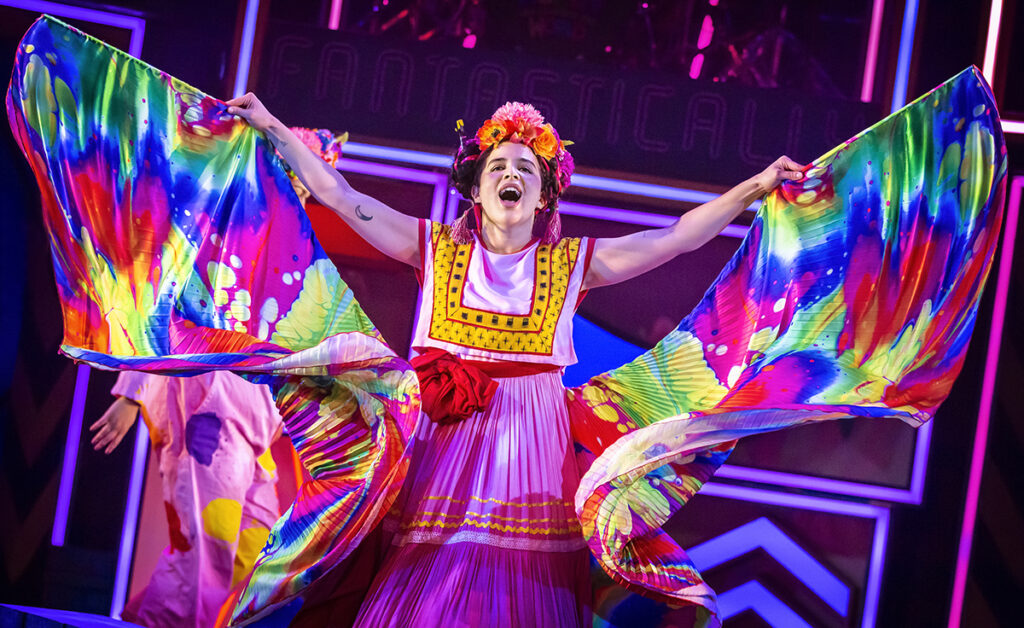
Georgia Grant-Anderson makes a plausible and likeable eleven-year-old in the key role of Jade (we want her to change the world AND get a puppy). Jennifer Caldwell brings Emmeline Pankhurst home with rabble-rousing passion, and there is a show-stopping number from Elena Breschi as Mexican artist Frida Kahlo, which tears up the boards (and features a barnstorming drum-break, led by Nicola T. Chang).
As a rule, reviewers will shift heaven and earth to avoid falling into traps, cunningly laid by theatre promotions folk, but this time, there’s no avoiding it:
This is a fantastically great show!
Fantastically Great Women who Changed the World is at The Lowry, Salford from 5 December 2023 to 7 January 2024.

